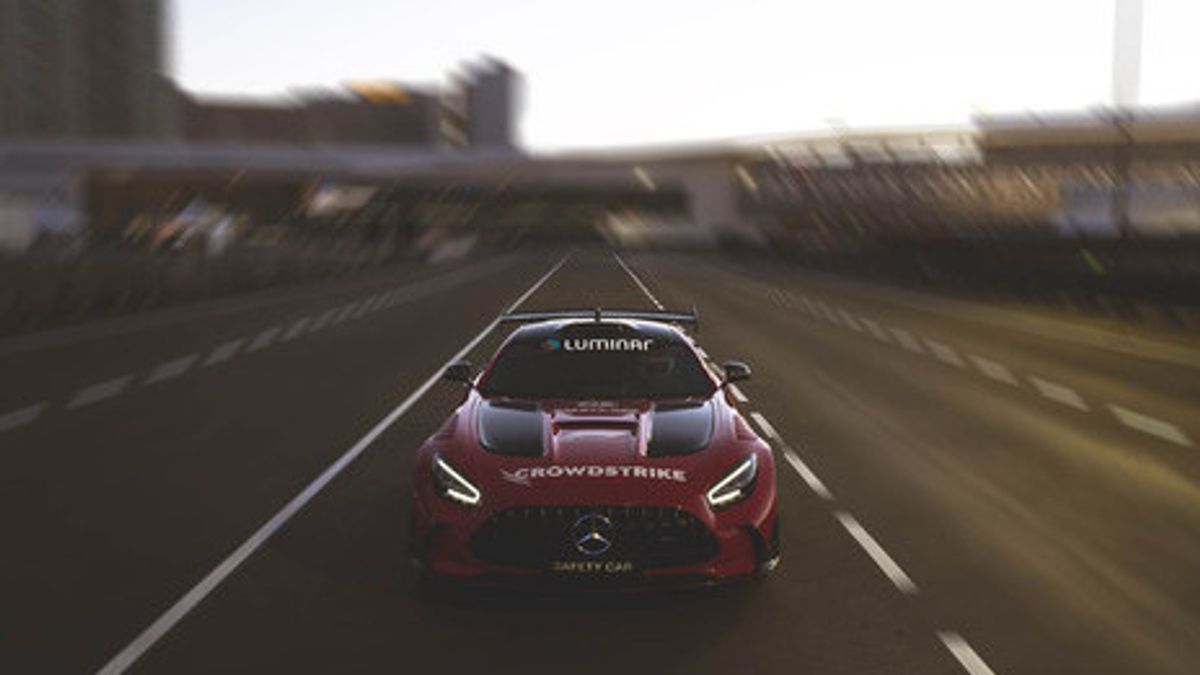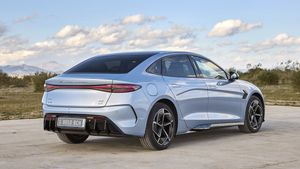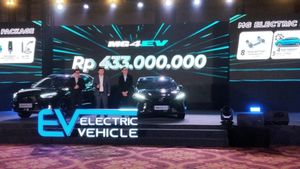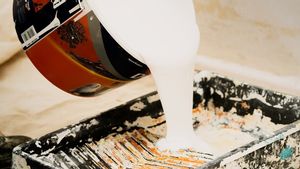JAKARTA - Car braking technology continues to develop, from ABS brakes to automatic emergency braking (AEB) which is now required. But what if the braking system is added to technology that can turn the steering wheel automatically to avoid accidents?
At the CES 2024 event in Las Vegas, the US which is now underway, the lidar company from Florida, Luminar, exhibited a new emergency steering (AES) feature powered by the Iris Plus sensor. The idea is to use a laser sensor, along with other safety systems on cars, to avoid proactive collisions without driver intervention.
In the company's official statement, January 9, it was explained that this technology utilizes Luminar's long-distance lidar, which is capable of detecting objects up to 300 meters in ideal condition. With this capability, it is hoped that the AES system can take action to avoid obstacles faster than the driver and of course have the potential to increase security, especially when the car is traveling at high speed on toll roads.
Although it sounds sophisticated, this system clearly needs more accurate testing to be applied to a car. In addition, not all drivers are also comfortable with cars that can make their own decisions. Imagine if the car suddenly slammed the steering wheel to avoid small objects such as plastic glasses on the road. Luminar had to make sure their system wasn't tricked by unnecessary objects.
But it turns out that this technology testing is also not kidding, Luminar has announced the expansion of cooperation for his testing with Mercedes-Benz to integrate the Iris Plus lidar into the team's official F1 safety car. Luminar is also working with the Mercedes-AMG Petronas F1 team and plans to install this sensor into the team's Mercedes-AMG GT Black Series.
Luminar's technology always strives to push the boundaries of performance while improving automotive safety and with F1, Mercedes-AMG takes it extreme to the world level of automotive enthusiasts, said Austin Russell, Founder and CEO of Luminar.
SEE ALSO:
In addition to Mercedes-Benz, companies cooperating with Luminar include Volvo, Audi, Toyota Research Institute, Intel's Mobileye, Airbus, and two Chinese companies: SAIC Motor and autonomous vehicle operatorcurrencycurrencycurrencycurr.ai.
Luminar's lidar and AES technology does promise to improve driving safety. However, user safety and comfort as well as thorough testing remain an important factor before this technology can be widely used.
The English, Chinese, Japanese, Arabic, and French versions are automatically generated by the AI. So there may still be inaccuracies in translating, please always see Indonesian as our main language. (system supported by DigitalSiber.id)
















